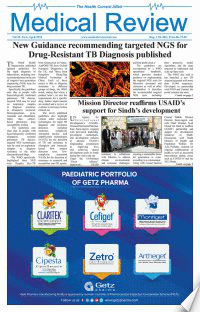The Nuclear Institute of Medicine & Radiotherapy (NIMRA) Jamshoro in collaboration with Liaquat University of Medical & Health Sciences arranged a “Cancer Awareness Walk” followed by a Seminar, to observe the World Cancer day on Thursday.
Addressing the participants, Director NIMRA Dr Naeem Ahmad Laghari said that the latest cancer statistics from the World Health Organization’s International Agency for Research on Cancer predict that if current trends continue, the global burden of new cancer cases will surge from 14.1 million in 2012 to 19.3 million by 2025.
He added that for developing countries, the situation often goes beyond addressing behavioural change, with many countries facing a ‘double burden’ of exposures, the most common of which is cancer-causing infections. Chronic infections are estimated to cause approximately 16% of all cancers globally, with this figure rising to almost 23% in developing countries. Several of the most common cancers in developing countries such as liver, cervical and stomach cancers are associated with infections with hepatitis B virus, the human papilloma virus, and the bacterium Helicobacter pylori respectively.
Exposure to a wide range of environmental causes in our personal and professional lives, including exposure to indoor air pollution, radiation and excessive sunlight are also major preventable causes of cancer. He informed that tobacco kills almost 6 million people a year, an average of one person every six seconds. By 2020, this number is set to increase to 7.5 million, which would mean that tobacco use accounts for one in ten of all deaths worldwide. Tobacco use, particularly smoking, is the single biggest cause of cancer in the world, responsible for more than a quarter of all cancer deaths, including cancers of the lung (71% of lung cancers are attributed to tobacco use), mouth, throat, nose and sinuses, liver, pancreas, stomach, cervix, breast, bowel, kidney and bladder. It also causes a wide range of other diseases including 10% of cardiovascular disease such as heart disease and stroke, 42% of chronic chest and lung illnesses and gangrene. It is associated with 23% of new tuberculosis cases.
Significant increase in non-communicable diseases such as cancer is occurring in the developing world, adding new killers to the already-heavy disease burden of infectious diseases afflicting poorer nations. 1/3rd cancer can be cured through early diagnosis and treatment.
The Pro Vice Chancellor LUMHS Professor Muneer Ahmad Junejo said that most modern lifestyle has helped cancer rates to rise dramatically worldwide. Many countries have seen reduced poverty levels and increased industrialisation, experience changes in environment, lifestyle and diets that are more conducive to cancer. These lifestyle changes include reduced activity levels, increases in “fast-food” consumption and consumption of guttka, manpauri, naswar, pan and increased tobacco used in Pakistan are factors causing cancer in our country. Treatment alone cannot win the battle against cancer and key priorities should be given to cancer prevention and control measures This will stop through implement effective tobacco control measures domestically including tobacco taxes, smoke free indoor workplaces and public places, health warnings, education and training, bans on advertising, promotion and sponsorship, and cessation assistance and to cooperate with other Parties in tobacco control efforts.
The Guest of Honour Pro Vice Chancellor, University of Sindh Professor Dr Muhammad Siddique Kalhoro said that on World Cancer Day, we have to speak out with one voice to dispel damaging myths and misconceptions on cancer. Under the theme “We can. I can” individuals and communities are encouraged to shed light on this World Cancer Day. This February 4th marks global efforts to advance cancer research and focus on methods to minimise the global burden of disease.
Professor Muhammad Aziz Lehgari said that the word Cancer is very scary, but the scenario could be scarier if you or any of your loved one is being diagnosed with the disease. But, the fact is that most cancers are preventable through lifestyle changes, early detection and treatment. The Deputy Commissioner Jamshoro Munawar Ali Mahesar said that World Cancer Day is a unique opportunity to raise awareness that there is much that can be done at an individual, community and governmental level, to harness and mobilise these solutions and catalyse positive change.


